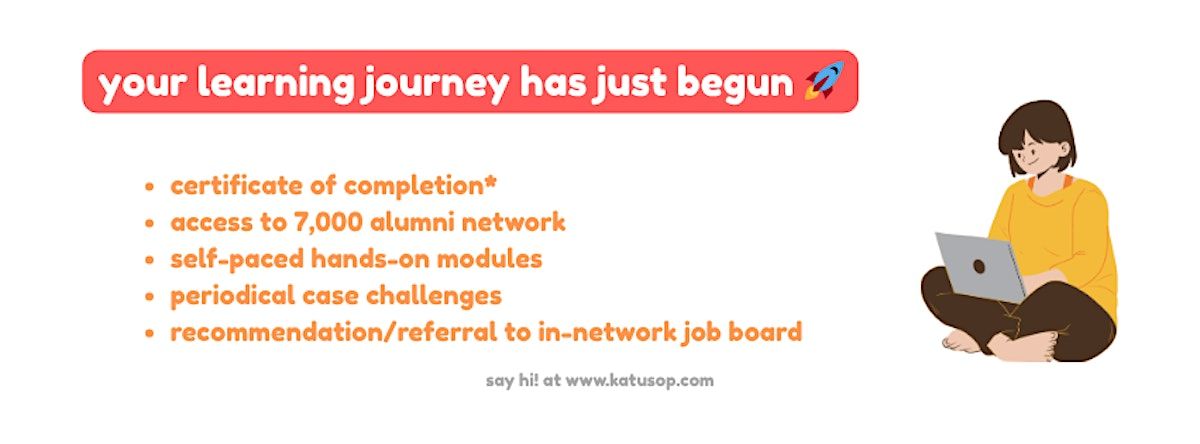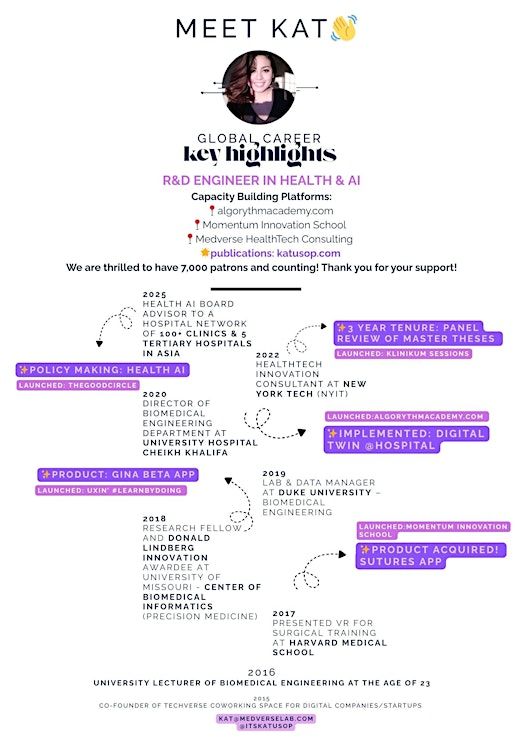
About this Event
Imagine designing a mobile app for managing a chronic condition like Type 2 diabetes.
This app is not just a digital logbook; it must become a trusted daily companion. It needs to seamlessly integrate with blood glucose monitors, track insulin dosages, provide personalized nutritional guidance, and offer timely, motivational nudges to encourage exercise. It must present complex data in a way that is understandable to a user who is managing their health every single day, while also empowering them to make better decisions in the moment. This is the ultimate test of mHealth design—a test that requires a deep understanding of long-term engagement, data visualization, and clinical accuracy.
This comprehensive training provides the essential knowledge and practical skills needed to successfully design a user-centric and effective mobile health (mHealth) application, whether for patients managing a chronic condition or for professionals guiding their care.
🎯 Key Learning Objectives
Upon completion of this training, participants will be able to:
Understand the mHealth landscape, including regulatory requirements and ethical considerations.
Conduct user research tailored to the unique needs of healthcare users.
Apply core UX/UI principles to design intuitive and accessible health applications.
Translate clinical needs into practical and secure app features.
Develop information architecture and wireframes that map the user journey.
Create high-fidelity prototypes and conduct effective usability testing.
Ensure data security and privacy by integrating best practices for handling sensitive information.
📚 Course Series Modules
Introduction to mHealth Design
Health User Research & Needs Assessment
Core UX/UI Principles for Health Apps
Information Architecture & Wireframing
Visual Design and Prototyping
Usability Testing and Validation
Security, Compliance, and Deployment
👤 Target Audience
This training is ideal for UX Designers, UI Designers, Product Managers, Business Analysts, and Researchers who are currently working on, or planning to work on, mobile applications in the healthcare, wellness, or life sciences industries.
🛠 Prerequisites
Basic familiarity with standard design software (e.g., Figma, Sketch, Adobe XD) and a foundational understanding of the product design process are recommended. No prior medical or clinical experience is required.
Reading Appetizer: EPIC's Latest "Comet" is Transforming Healthcare: An In-Depth Analysis
The mobile health (mHealth) market is experiencing significant growth, driven by a combination of technological advancements, a rising focus on remote patient care, and the increasing adoption of smartphones and wearable devices.
According to various market reports, the global mHealth market is projected to reach a value of over $200 billion in the coming years, with some forecasts placing the market size at around $249 billion by 2032. This growth is powered by a high compound annual growth rate (CAGR), with multiple reports estimating it to be between 11% and 26% over the next decade.
Key factors contributing to this trend include:
Growing demand for remote patient monitoring: This is particularly relevant for the aging population and for managing chronic conditions like cardiovascular diseases and diabetes.
Widespread smartphone and internet adoption: This has made mHealth apps and services more accessible to a broader audience.
Technological innovation: The integration of AI, machine learning, and 5G technology is enhancing the functionality of mHealth solutions.
Increased focus on fitness and wellness: The segment of fitness and health management apps is a major driver of market growth.
North America currently holds the largest share of the market, but the Asia-Pacific region is projected to be the fastest-growing market.


Event Venue & Nearby Stays
San Jose, United States
USD 77.77 to USD 88.88












